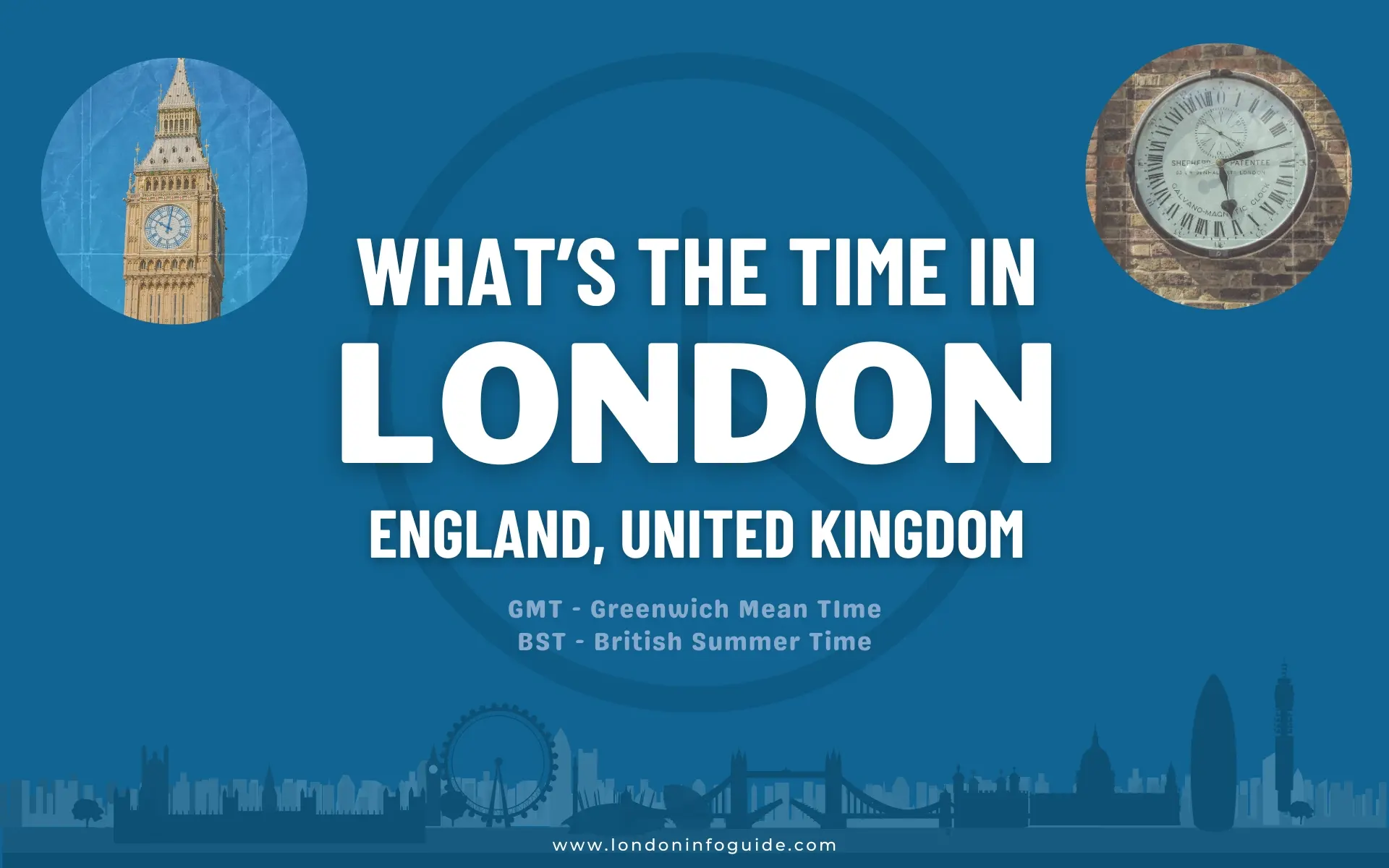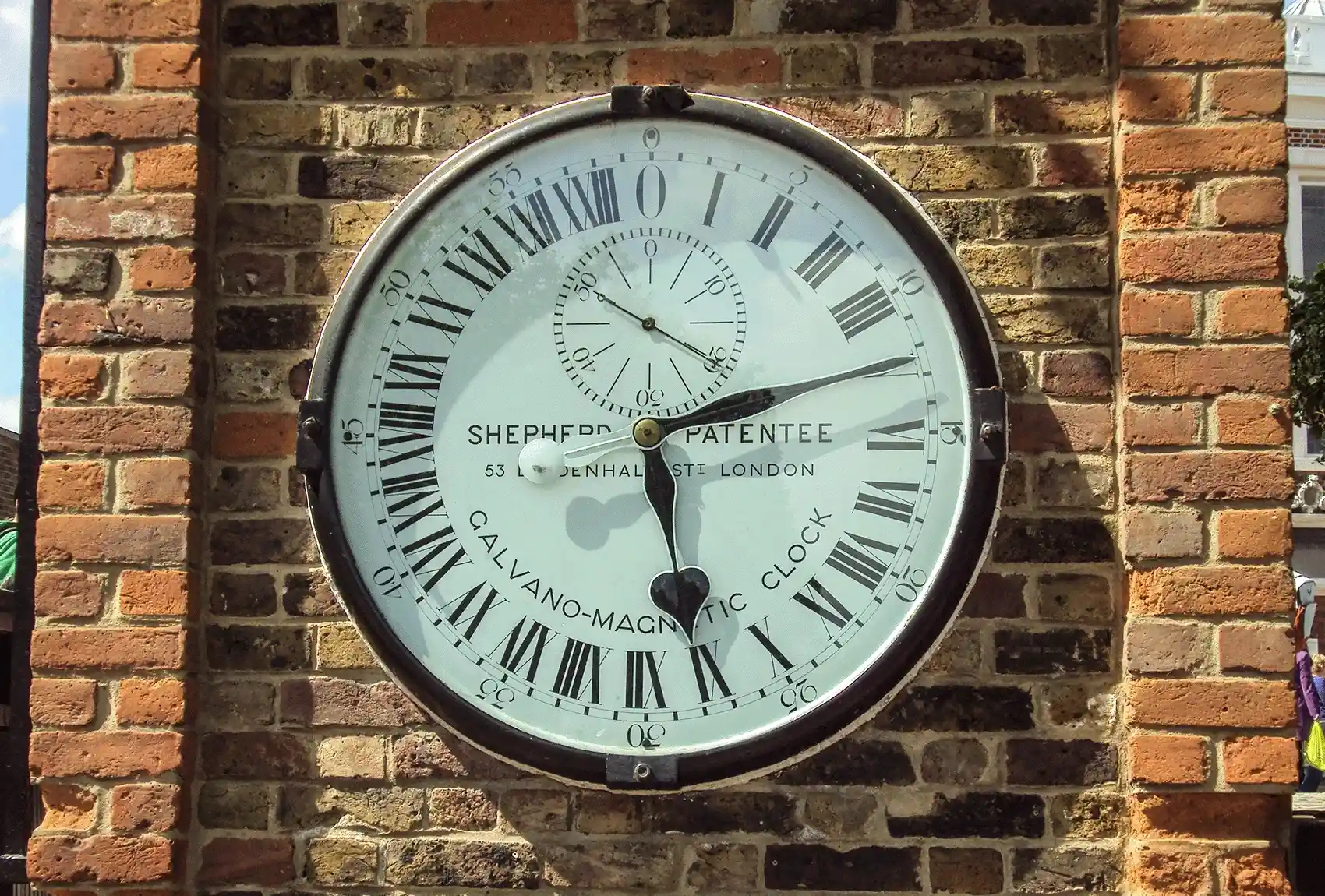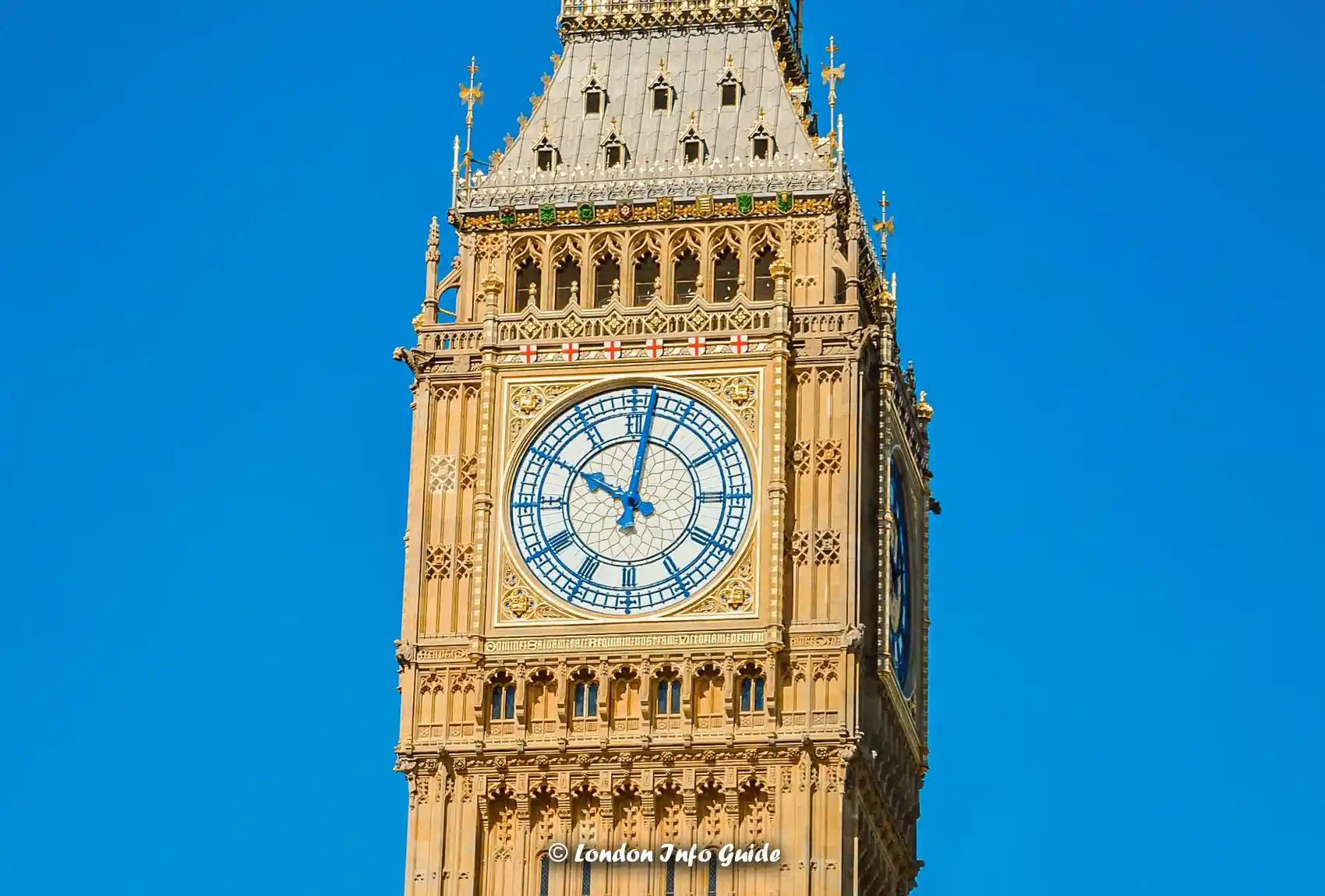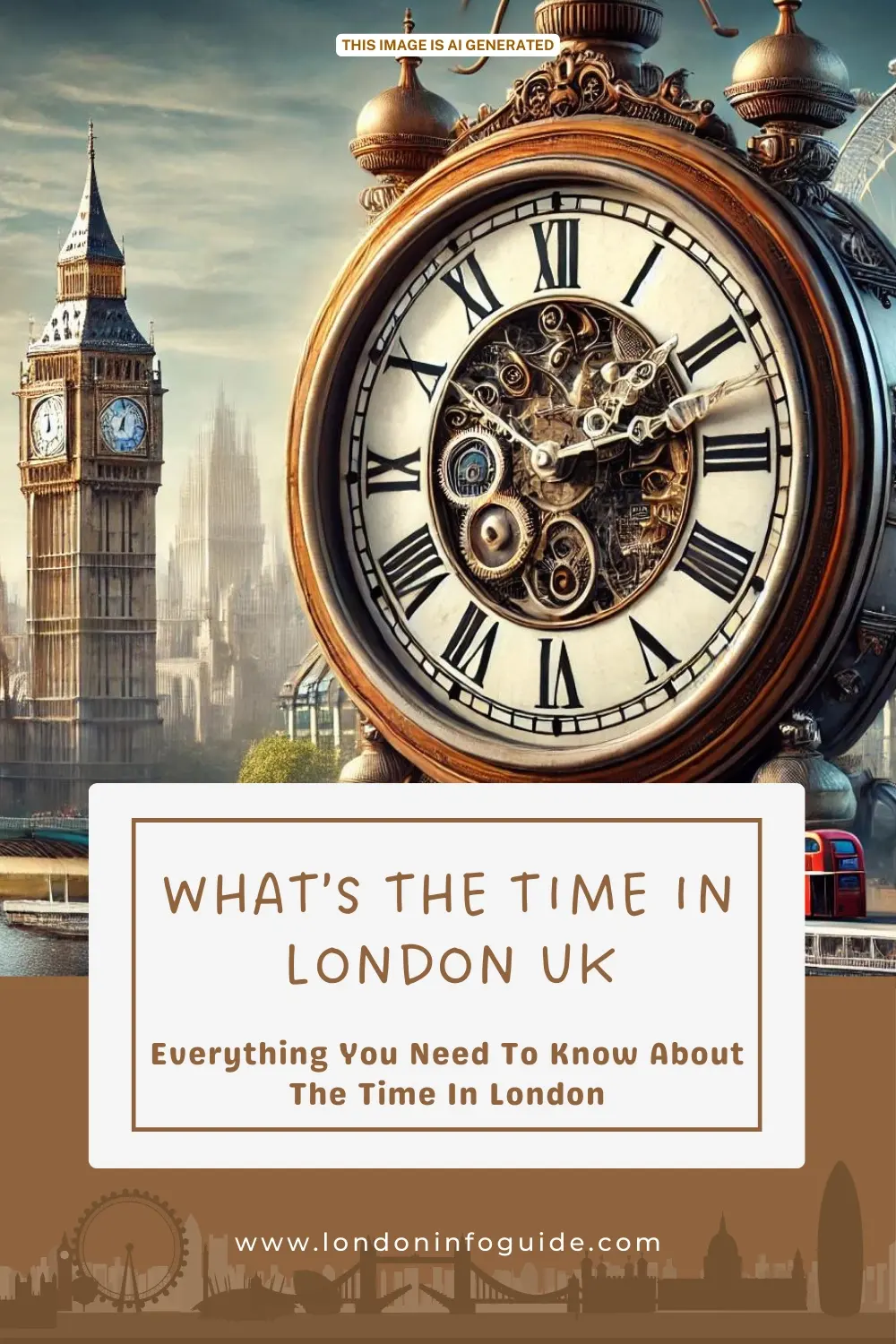- Home
- Where Is London In UK
- Whats the Time in London
what's the time in london UK
Knowing the Time in London
What's the time in London UK? Understanding the current time in London is critical for making the most of your trip, whether on holiday, a layover, or simply passing through.
To make the most of your journey to London, whether for a holiday, a stopover, or simply passing through, you must understand the local time.
 What Time Is It In London?
What Time Is It In London?London follows Greenwich Mean Time (GMT) in the winter and British Summer Time (BST) in the summer, which can have a considerable impact on your travel arrangements.
This guide provides in-depth information about London's time zone, seasonal changes, and practical tips for adapting to local time, ensuring you make the most of your visit to this bustling city.
A guide to the time in london england
- What is the time in London?
- Understanding London Time
- Planning your visit to London
- Frequently Asked Questions about the Time in London
🎅 London Christmas Planning 2025 Starts Now!
- 🏨 Best Hotels in London for Christmas
- 🎄 Christmas in London Guide: Events | Lights | Markets | Tours
- ✨ Best Areas to Stay in London
- 🎁 Luxury Hotels in London
- ❄️ Weather In London For Christmas
- 🎟️ Things to Do in London in December
- 🛍️ Shopping in London at Christmas 2025
- 🎡 Visit Winter Wonderland at Hyde Park in London
- 🏨 Best Hotels Close to Winter Wonderland
What's the time in London?
What is the current local time in London, England? The clock underneath is showing the current time in London.
All time zones within the United Kingdom and Ireland are the same. This includes England, Ireland, Scotland, and Whales.
time in different countries
Below are several times from major cities and countries around the globe compared to London.
They mostly come from the USA, France, Germany, Spain, Ireland, Sydney and Tokyo.
Los Angeles
new york
france
germany
canada
italy
ireland
spain
Sydney
Tokyo
Los Angeles
new york
france
germany
canada
italy
ireland
spain
Sydney
Tokyo
How London Time Compares to Other Time Zones
Understanding how London time corresponds to different time zones across the world is critical for travellers coming from other countries. Here's a brief guide to some prominent cities:
- Los Angeles, California: London is 8 hours ahead during GMT, and 8 hours ahead during BST.
- New York, USA: London is 5 hours ahead during GMT, and 5 hours ahead during BST.
- France: London is 1 hour behind during GMT, and 1 hour behind during BST.
- Germany: London is 1 hour behind during GMT, and 1 hour behind during BST.
- Canada: London is 5 hours ahead during GMT, and 5 hours ahead during BST.
- Italy: London is 1 hour behind during GMT, and 1 hour behind during BST.
- Ireland: There are no differences in hours between GMT and BST.
- Spain: London is 1 hour behind during GMT, and 1 hour behind during BST.
- Sydney, Australia: London is 11 hours behind during GMT, and 9 hours behind during BST.
- Tokyo, Japan: London is 11 hours behind during GMT, and 8 hours behind during BST.
GMT — Greenwich Mean Time
BST — British Summer Time
Understanding the time in London
Greenwich Mean Time (GMT) and British Summer Time (BST) affect the clock in London. This section covers the time shifts, giving travellers essential details for planning their journey and making the most of their stay.
What is Greenwich Mean Time GMT?
It is standard time at the Royal Observatory in Greenwich, London. It serves as the time reference from which all other time zones are computed, and London uses it during the winter months. So GMT is observed from the last Sunday in October to the last Sunday in March.
Greenwich is the traditional home of timekeeping, located on the Prime Meridian (0° longitude), which serves as the beginning point for the world's time zones.
- Time Zone Abbreviations: GMT (Greenwich Mean Time): Used during the winter months.
 Royal Observatory at Greenwich London
Royal Observatory at Greenwich LondonWhat is British Summer Time BST?
In the United Kingdom, Daylight Saving Time is observed, which shifts the time to British Summer Time (BST). BST is GMT+1 and is observed from the last Sunday in March to the last Sunday in October. This change provides for extended daylight hours in the evenings throughout the summer, which is beneficial for visitors who are interested in discovering the city.
- Time Zone Abbreviations: BST (British Summer Time): GMT+1, used during the summer months.
Daylight Saving Time DST Differences
Not every country uses Daylight Saving Time, and those that do may begin and conclude it on various dates. This can cause momentary timing disparities. For example, the United States begins DST on the second Sunday in March and ends on the first Sunday in November, which might temporarily affect the typical time difference with London.
The United States begins DST on the second Sunday in March and ends on the first Sunday in November, which might temporarily affect the typical time difference with London. However, note that Hawaii and most of Arizona do not observe DST.
Furthermore, these changes might be especially obvious when planning overseas meetings or trips. Keeping an eye on local changes can help you remain on track and make the most of your time in London. Remember to prepare ahead of time and check for time changes to avoid missing flights or other scheduled events.
These countries use standard time throughout the year, which might have an influence on international time disparities when DST is observed in countries such as the United States and the United Kingdom. Here are a few prominent ones:
Japan, India, China, Russia, South Korea, Singapore, most of Africa, Most of Southeast Asia, Iceland, Argentina, Peru and Colombia.
Planning Your Trip When to Visit London
Timing your holiday to London might open you to a world of unique experiences.
- Spring (March to May) provides flowers in full bloom and moderate weather, making it the best time to explore without crowds. BST begins in late March.
- Autumn (September to November) provides a lovely scene with vibrant foliage and pleasant temperatures. BST ends end October.
- Summer (June to August) is the most popular season to visit, with nice weather, busy streets, and an array of events and festivals.
- Winter (December to February) transforms London into a festive paradise, ideal for visitors seeking Christmas happiness and cheaper travel expenses despite the cold weather.
Optimise Your Layover Time in London
If you have a stopover in London, managing your time efficiently is critical.
- Short layovers (2 to 4 hours): Stay in the airport, make use of the world-class services, go shopping, or relax in a luxurious lounge. Don't miss out on the various eating alternatives that provide British food right at the airport.
- Long layovers (5-plus hours): Make the most of your extra time by visiting neighbouring attractions. Visit the famous Windsor Castle, which is only a short ride away, or head into downtown London to view renowned attractions such as the Tower of London, and Buckingham Palace, or a leisurely walk along the Thames. With great transit links, you can enjoy London's attractiveness in a short period of time.
Tips for Adjusting to London Time Dealing with Jet Lag
Jet lag may affect your energy and mood. Here are some other strategies to reduce its impact:
- Adjust your schedule: A few days before your vacation, gradually adjust your sleep routine to match London time. Try going to bed and getting up an hour sooner or later each day to better coincide with London's time zone.
- Stay hydrated: Drink a lot of water before, during, and after your travel. Staying hydrated might help you avoid the drying effects of flying and feel more rejuvenated when you arrive.
- Get Sunlight: Exposure to natural light might help reset your internal clock. Spend as much time as possible outside, particularly in the morning, to help your body acclimatise to the new time zone faster.
- Take Short Naps: If you're exhausted, take a short nap (20-30 minutes) to prevent interrupting your night's sleep. Short naps might give a short energy boost while allowing you to sleep through the night.
 What Time In London England | The Big Ben Clock
What Time In London England | The Big Ben Clocktimings to keep in mind
- Big Ben: The Big Ben in London chimes every hour, and the smaller bells chime every 15 minutes.
- Changing of the Guards: This happens several times a week just outside Buckingham Palace.
- Tea Time: General tea time is usually between 3 pm and 5 pm, with 4 pm being the best time.
- Tube (Metro): First tube starts are 5 am lasting up until midnight.
first-time visitor travel questions
Every visitor has questions about travelling to a new destination. We have put together the most popular questions and dedicated guides for each.
- What is the weather like and how does it fluctuate on a month-by-month basis?
- Which neighbourhoods are best to stay in London?
- What can I do in London on a rainy and stormy day?
- Which areas around London can I visit and have a good time?
- Are there any free attractions in London for a budget-friendly holiday?
- Will you be visiting London for the first time? Explore our essential tips!
- Are you wondering whether London is worth visiting? Check out our guide!
- Packing for London? Check out all the vital things you must pack!
- What currency does London use? A detailed guide into using the currency.
- What time zone does London England use?
- How many days should you spend in London? Find our best answer in this guide!
- Planning your first trip to London? Don’t miss our complete guide on the things to know before visiting London
Understanding the time in London, UK, is essential for planning a smooth and enjoyable trip. By familiarizing yourself with local time changes, seasonal variations, and practical travel tips, you can make the most of your stay in this iconic city. Whether you’re here for a short visit or an extended stay, these insights will help you navigate London’s time and maximize your experience.
questions about the current time in london
What time zone is London in?
What time zone is London in?
During the winter, London uses GMT, whereas in the summer it uses BST (GMT+1).
How does Daylight Saving Time affect London?
How does Daylight Saving Time affect London?
Daylight saving time begins in late March, moving clocks forward one hour, and ends in late October, shifting clocks back one hour.
Which are the best months to visit London?
Which are the best months to visit London?
March to May and September to November are the ideal months to visit because of the nicer weather and fewer tourists.
How can I prevent jet lag while travelling to London?
How can I prevent jet lag while travelling to London?
Adjust your sleep pattern gradually before your vacation, remain hydrated, and get enough sun after you arrive.
Understanding the time in London, UK, is essential for planning a smooth and enjoyable trip. By familiarizing yourself with local time changes, seasonal variations, and practical travel tips, you can make the most of your stay in this iconic city. Whether you’re here for a short visit or an extended stay, these insights will help you navigate London’s time and maximize your experience.
Want To Share This Page On Pinterest? Pin It Here!
photo sources - whats the time in London
- Royal Observatory Greenwich Clock - Rept0n1x, CC BY-SA 3.0 , via Wikimedia Commons








